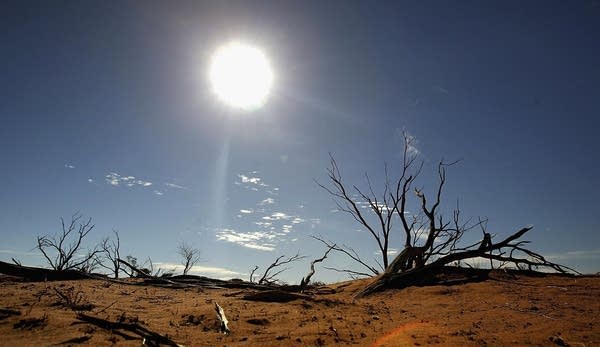The birth of 'cli-fi': Books that tackle climate change

A report by the Australian Federal Government found that Australian cities face a much higher risk of the destructive effect of climate change resulting in severe storms.
Ian Waldie / Getty Images 2005
Go Deeper.
Create an account or log in to save stories.
Like this?
Thanks for liking this story! We have added it to a list of your favorite stories.


